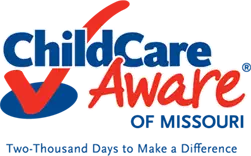The accreditation process involves programs meeting standards that exceed Missouri’s licensing regulations. Each organization has its own expectations that programs must reach to earn accreditation status. Families can search for accredited programs by using filters available in the Child Care Aware® of Missouri database. Missouri recognizes the following national and state accrediting bodies.
Missouri Accreditation of Programs for Child and Youth (MOA)
Missouri was the first state to establish and apply quality accreditation standards for programs providing care and education for children. Missouri Accreditation (MOA) works to enhance the physical, social, emotional, and intellectual growth opportunities available to children in early learning and school age programs across Missouri. MOA provides ongoing monitoring, evaluation, and recognition of programs who have met and maintained Missouri Accreditation standards. Accreditation criteria include the areas of children’s relationships and interactions, physical environment, programming and curriculum, family and program connections, administration, as well as health, safety, and nutrition.
National Association for the Education of Young Children (NAEYC)
NAEYC works to support high-quality, research-based education to provide a solid foundation for all children’s future success by implementing quality-improvement resources, research on best practices, training, and technical assistance to licensed child care centers. NAEYC addresses three core areas within its accreditation process—children, teaching staff and administration, and families and community relationships. In looking closely at these three areas, NAEYC examines the way children are influenced by their educational leadership and family and community relationships. Each piece is evaluated at the NAEYC standard level in order to determine their accreditation achievement.
National Association for Family Child Care (NAFCC)
For over 25 years, the NAFCC has worked to promote high-quality early childhood experiences and prioritize access, affordability, and quality of early care and education specifically in the licensed family child care environment. The NAFCC strives for progress in the investment and implementation of the Child Care and Development Block Grant, Early Head Start-Child Care Partnerships, and the Child and Adult Care Food Program in the Child Nutrition Reauthorization. Other core focuses include strengthening the early childhood workforce and increasing the availability of high-quality child care in rural communities, for infants and toddlers, and for families who work non-traditional hours.
National Early Childhood Program Accreditation (NECPA)
NECPA can be applied to family child care and center-based programs who are licensed for seven or more children. It works to improve the quality of early care and education programs. NECPA standards are based on 30 years of research in the area of early care and education. NECPA standards aim to address the whole child by assessing relationships between the child and teacher, the program and family, and the program and the community.
Commission of Accreditation of Rehabilitation Facilities (CARF International)
CARF® International works with diverse environments through an accreditation process and ongoing progress review that focuses on improving the lives of the individuals served. CARF works with different health and human service institutions like rehabilitation programs, treatment programs for addiction and substance abuse, home and community services, and retirement living. CARF accreditation requires institutions to meet its standards related to business and service delivery and to commit to ongoing improvement. Accreditation is evaluated annually based on standards set forth collaboratively by professionals and consumers of different viewpoints.
Council on Accreditation (COA)
COA is an international peer accrediting body that works with human service programs and organizations, including child and youth development programs, to produce high-quality, measurable results focusing on growth, stability, health, and safety. COA considers the consumers, staff, board, and donors, funders, and regulators to be the four key groups to examine when establishing accreditation.
Cognia works with early childhood institutions to improve teaching and learning as well as health and safety to better support early learning, growth, and development. It utilizes research-based and evidence-based principles to examine how the policies, practices, learning conditions, and cultural setting work together to reach the program’s vision and meet the needs of every learner. It focuses heavily on a program’s ability to sustain an exemplary commitment to continuous progress and learner outcomes.

